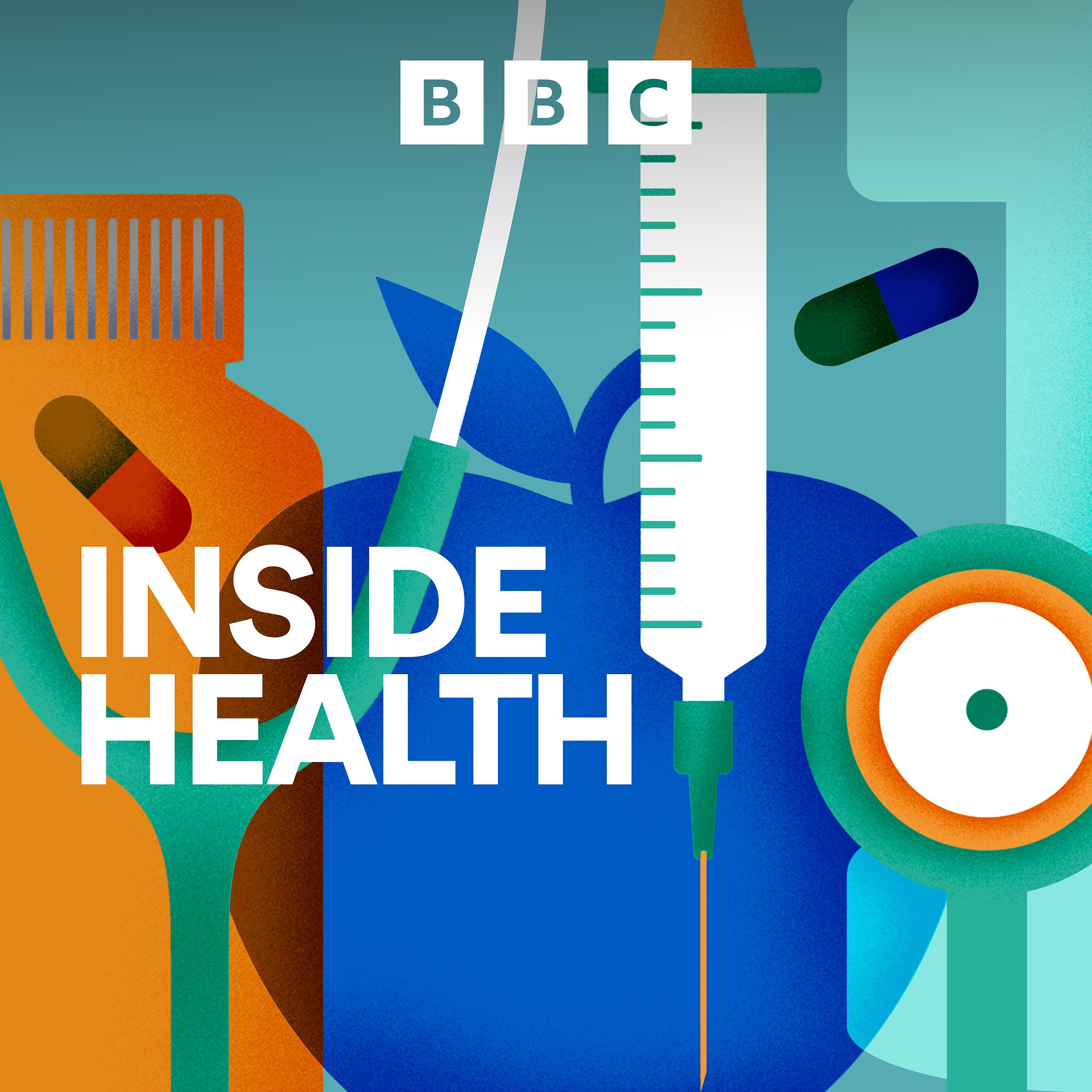BBC Radio 4 - Medical Matters
Inside Health
Series that demystifies health issues, separating fact from fiction and bringing clarity to conflicting health advice.

-
Where does air pollution go inside our body?
James Gallagher stands by four lanes of traffic and inhales exhaust fumes all to see if he can see air pollution in his body. He looks at an intriguing finding that an mRNA vaccine might benefit people being treated with immunotherapy for some cancers and could we be on the cusp of a holy grail in dentistry? A breakthrough could mean we will soon be able to replace the enamel on our teeth. Presenter: James Gallagher Producer: Tom Bonnett Researcher: Thom Hunt Editor: Ilan Goodman
-
Can working up a sweat in a sauna improve your health?
Saunas are popping up all over the country, with many people claiming they relax muscles and help ease stress. But what does the science say? This week, James Gallagher travels to Môr A Sawna in Jackson’s Bay, Barry, where he treats himself to a sauna session and undergoes a number of physical tests to find out what benefits the sweaty heat could offer.
Next up, James visits The Advanced Neuropathies Centre in Cardiff to speak with Professor Liam Gray, a surgeon who is leading a pioneering treatment for Huntington’s disease.
Presenter: James Gallagher Producers: Alice Lipscombe-Southwell and Gerry Holt Researcher: Tom Hunt Editor: Ilan Goodman Production coordinator: Stuart Laws
This episode was produced in partnership with The Open University.
-
The Revolution in Cystic Fibrosis Care That is Changing Lives
In 1964, the future for children born with Cystic Fibrosis was grim - most faced a life cut tragically short. Today, the majority of people living with CF in the UK are adults, a testament to extraordinary medical progress.
We meet Annabelle who lives with Cystic Fibrosis, and once believed she might not see her 18th birthday. And we hear from Dr Imogen Felton, a respiratory consultant at Royal Brompton Hospital, with expertise in cystic fibrosis, who tells us about the therapies crucial to this extended prognosis.
The EDITH trial (Early Detection using Information Technology in Health) is testing how AI can help radiologists identify breast cancer at an earlier stage, transforming the future of diagnosis. We speak to Professor Sian Taylor-Philips, Professor of Population Health at the University of Warwick and co-leader of the trial.
In 2024, participation in Run Clubs across the UK surged by 64%. But does running in a group lead to better performance? To find out, James laces up for a jog around Hyde Park with the Monday Mood Booster Run Club and speaks with Arran Davis, a postdoctoral researcher at the University of Oxford, who’s exploring the links between social interaction and physical activity.
Presenter: James Gallagher Producers: Debbie Kilbride, Minnie Harrop & Tom Bonnett Editor: Ilan Goodman Production coordinator: Ishmael Soriano This episode was produced in partnership with The Open University.
-
Potential Break Through in Dementia Treatment
Dementia is now the UK’s leading cause of death - but could a vaccine one day help prevent it? New data from Wales suggests the shingles vaccine is linked to a 20% lower risk of developing dementia in later life, adding to evidence that viral infections can influence brain health.
Dr. Pascal Geldsetzer, Assistant Prof of Medicine at Stanford University discusses his findings and the further evidence required to prove this link, along with Prof Tara Spires-Jones, Group Leader in the UK Dementia Research Institute.
The UK has begun using the world’s first gonorrhoea vaccine - though it was originally developed for meningitis. With antibiotic-resistant strains increasing, we speak to Dr Suneeta Soni about why gonorrhoea has been so hard to target with vaccines.
At the Bristol Robotics Lab, engineers are creating devices to support mobility in older age. James meets Jonathan Rossner and tries out “The Right Trousers” - an inflatable exoskeleton designed to help people walk and to strengthen their muscles.
Presenter: James Gallagher Producers: Debbie Kilbride, Tom Bonnett & Minnie Harrop Editor: Ilan Goodman Production coordinator: Ishmael Soriano This episode was produced in partnership with The Open University.
-
Is it safe to give kids melatonin?
More and more parents are using melatonin to help their children sleep - but there is little research on the long-term effects.
So, what do we know about the risks and is it ok to give it to children as an aid to help sleep?
James chats to Paul Gringras, professor of children’s sleep medicine and neurodisability at Guy’s and St Thomas’ NHS Foundation Trust and Vicki Beevers, chief executive of The Sleep Charity.
Also this week, resident GP Margaret McCartney on the potential promise - and peril - of doctors using AI in the NHS, and should you eat your placenta? We hear from a dietician on whether there’s any evidence it’s good for you.
Presenter: James Gallagher Producers: Tom Bonnett, Debbie Kilbride & Gerry Holt Editor: Ilan Goodman Production coordinator: Ishmael Soriano
This episode was produced in partnership with The Open University.